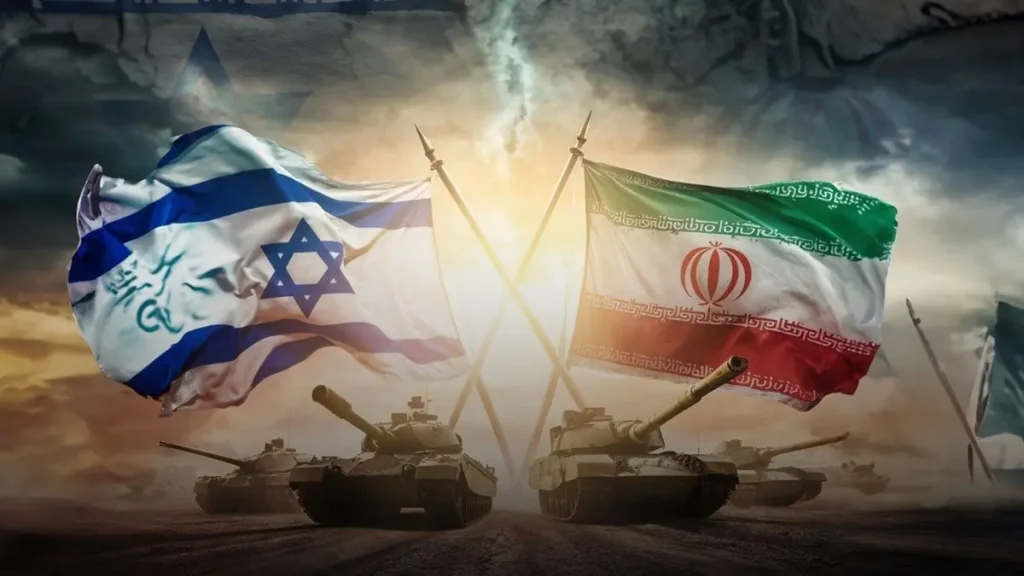As the Iran-Israel air war intensifies, global tensions are reaching a boiling point—and the world may be inching toward a broader confrontation. Now, with U.S. pressure mounting and China deploying mysterious cargo flights to Iran, concerns are growing that Beijing may be edging closer to direct conflict with Washington.
Amid the escalating crisis, U.S. President Donald Trump has issued a hardlines demand for Iran’s “unconditional surrender,” amplifying fears that American military intervention is imminent. Israeli officials have stated they expect U.S. involvement soon, while the UK government, led by Prime Minister Sir Keir Starmer, has confirmed it is considering military support if Washington engages Iran directly.
Earlier today, Starmer convened an emergency COBRA meeting at 10 Downing Street, bringing together senior ministers and intelligence chiefs to review Britain’s strategic position in what increasingly resembles a brewing global war.
China mystery cargo fly to Iran
In a development causing serious concern among Western intelligence agencies, China has dispatched three long-range cargo flights to Iran in just three days, raising suspicions of covert military support.
The aircraft involved—Boeing 747 freighters, commonly used for transporting heavy equipment—took off from major Chinese cities, including Shanghai, and followed flight paths over Central Asia. Each plane disappeared from civilian radar systems as it neared the Iran-Turkmenistan border, only to reappear hours later, far from their officially listed destination of Luxembourg.
Flight logs indicate none of the aircraft entered European airspace, fueling speculation that the declared routes were a cover for operations directed at aiding Iran militarily amid its intensifying confrontation with Israel.
“These cargos cannot but generate a lot of interest because of the expectation that China might do something to help Iran,” said Dr. Andrea Ghiselli, an expert in China–Middle East relations at the University of Exeter.
Strategic Alliances and the Risk of a Global Conflict
Iran and China have long maintained a strategic partnership, grounded in mutual opposition to the U.S.-led world order and ambitions to shape a “multi-polar” global balance. China also relies heavily on Iranian crude oil—importing up to two million barrels per day—making Tehran a vital economic and geopolitical ally.
Analysts warn that if Iran’s regime were to collapse under military pressure, the resulting instability would threaten China’s regional interests and energy security.
According to the Telegraph, “The presence of Chinese military hardware in Iran would make stabilising U.S.-China relations almost impossible,” Dr. Ghiselli added.
“There are already voices in Washington pushing for U.S. involvement not just to counter Iran, but to contain China.”
Arms Under the Radar? Commercial Disguise Suspected
Though Beijing has made no official statements, China’s history of disguising arms shipments as civilian goods is well documented. Past intercepted shipments included drone components mislabeled as wind turbine parts—highlighting how plausible a covert weapons transfer to Iran might be.
Available flight data show a pattern: planes disappear in Iranian-adjacent airspace and reappear much later, with their actual paths and cargo undocumented. Cargolux, the Luxembourg-based airline operating the aircraft, denies using Iranian airspace, but has declined to disclose what was being transported.
European aviation authorities confirm that cargo manifests are often confidential and easily manipulated—especially when states have a vested interest in concealing the true nature of shipments.
Beijing’s Calculated Provocation—and Russia’s Caution
While Russia has issued a stark warning to Trump not to bomb Iran, China appears to be operating in a grey zone—testing boundaries without openly crossing red lines. However, as U.S. intelligence officials monitor Chinese Iranian movements more closely, the line between covert assistance and overt provocation is growing thinner.
“While the likelihood of China openly arming Iran remains low, the risk cannot be dismissed,” said Tuvia Gering, a specialist in China–Middle East strategy at Israel’s Institute for National Security Studies.
“If confirmed, these actions could bring Beijing into direct strategic confrontation with the United States.” Outlined by the Telegraph.
Global Stakes: A Flashpoint for Superpower Confrontation
With Israeli fighter jets active, U.S. political hawks agitating for action, British forces on standby, and China quietly dispatching aircraft toward Iran, the Middle East conflict is quickly evolving into a global crisis.
Experts warn that if Chinese involvement is confirmed—especially the transfer of military equipment to Iran—Beijing’s actions may be interpreted as a direct provocation against the U.S., potentially setting off a chain reaction with grave consequences for international stability.
“A war between Iran and Israel is already dangerous,” one Western diplomat told New Daily Prime.
“But a China–U.S. confrontation over Iran could destabilise the global order in ways we haven’t seen since the Cold War.”
As superpowers circle the battlefield and diplomatic lines fray, the world watches—nervously and uncertainly—at what could be the dawn of a wider war.
Read Also:
Middle East: UK, US, France , Australia rally behind Israel’s offensive on Iran
Trump: It’s possible US gets involved in Israel-Iran conflict
Israel hits Iran’s energy sites as tensions escalate



